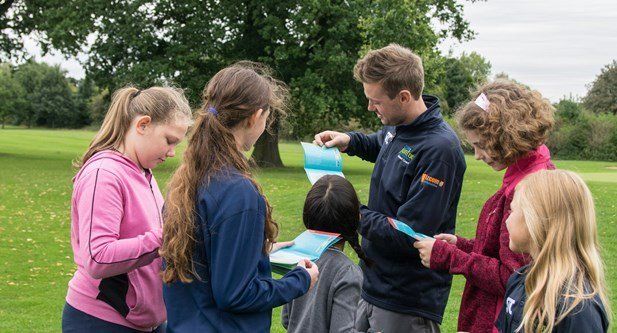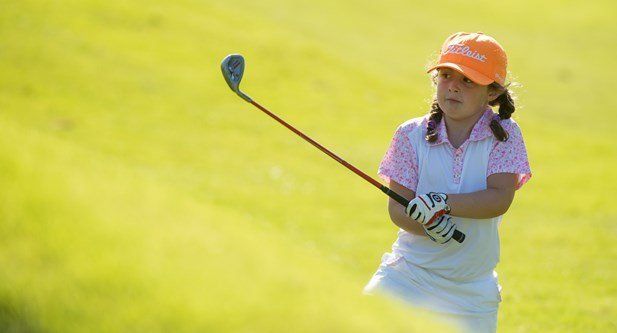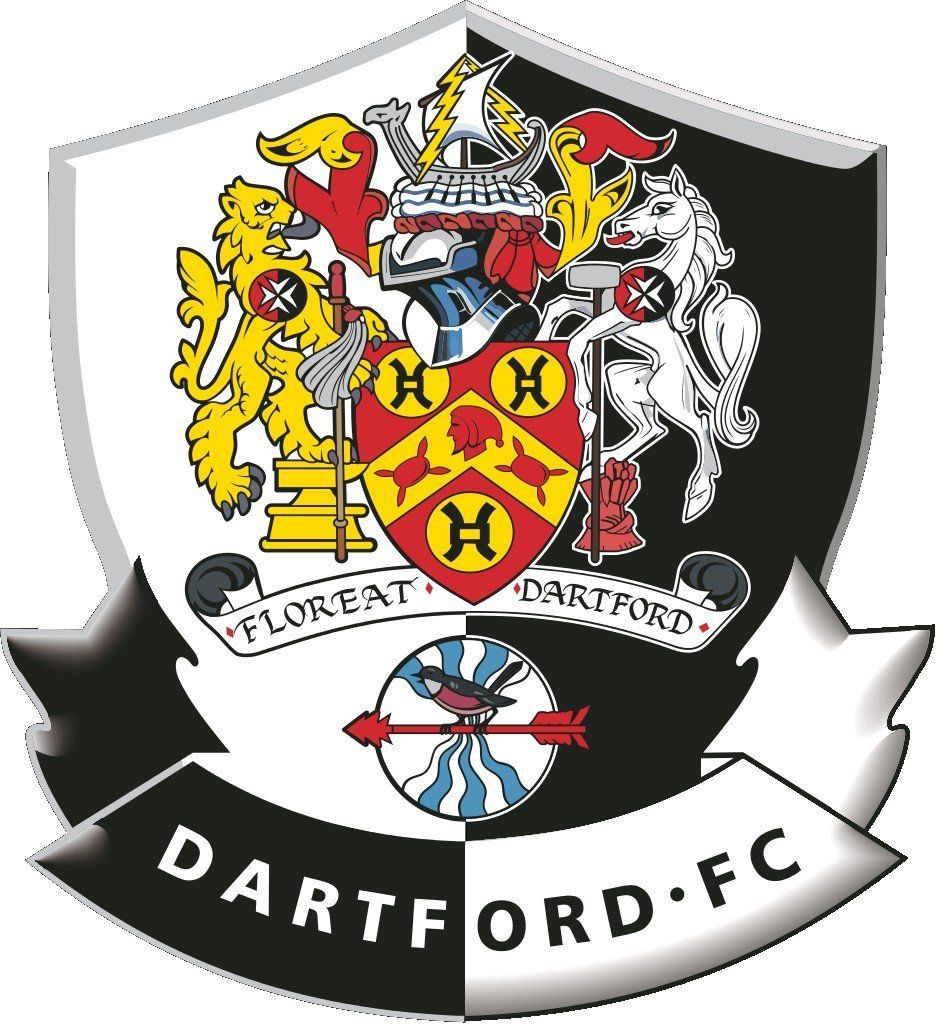Youth programme
Youth Programme Currently Unavailable


Junior Golf
As part of our junior golf development at The Paul Page Golf Academy we invite all junior golfers of all abilities to take part in our Junior/Youth Programmes. We ask each junior golfer to play the course, complete a scorecard and present it to Reception. The completed scorecard decides group placement that is best suited to the junior's needs. Also, playing the course prior to starting a programme gives the opportunity to view the facilities, familiarise oneself with the course and meet our PGA Professional Paul Page.
Why choose The Paul Page Golf Academy for learning to play golf?
- Exclusive level of golf coaching to the area.
- Paul Page boasts experience in playing tournament golf, beating Tiger Woods in the US Amateur Championship in Houston, Texas.
- The Academy is sited on a 9-hole, par 3 course equipped with everything needed to learn every area of the game.
- The Indoor Simulator studio is the only of its kind in the area and provides a technical review of your game in all weathers.
We have three programmes available:



PLEASE NOTE: These courses are not roll up classes. Places are limited. Therefore if you are unable to attend one week you will still be charged for the session.
How do I register/get my child signed up? Currently Unavailable
You simply need to send an email to: info@thepaulpagegolfacademy.co.uk
with the following information for your child:
- Name
- Date of birth
- Contact telephone number
- Brief golfing history, i.e. new to golf, beginner, etc
In order for your child to be accepted and a place secured on the 10 week Passport Programme we will require a deposit payment or payment in full when you arrive. We will also provide some paperwork, consent forms, etc that will need to be completed and returned.
Paul was introduced to golf at the age of 14 and attended programmes similar to the above mentioned. At the age of 21 he competed in the US Amateur Championship in Houston, Texas, beating the famous Tiger Woods. Who knows where golf could take you?


HSBC Golf Roots
At the heart of all Golf Foundation activity are 400 golf clubs delivering the charity’s flagship scheme, HSBC Golf Roots. These are approved junior-friendly golf clubs and facilities that reach out into schools and the community to provide young people with a fun and safe introduction to golf, led by a qualified PGA Professional Coach. Structured follow-on coaching is then provided back at the golf club with the opportunity to progress into regular play and ultimately, membership.
At the heart of all Golf Foundation activity are 400 golf clubs delivering the charity’s flagship scheme, HSBC Golf Roots. These are approved junior-friendly golf clubs and facilities that reach out into schools and the community to provide young people with a fun and safe introduction to golf, led by a qualified PGA Professional Coach. Structured follow-on coaching is then provided back at the golf club with the opportunity to progress into regular play and ultimately, membership.
Skills for Life
'Skills for Life' is a concept based on the belief that children and young people are able to develop playing skills and personal skills through Golf Foundation initiatives which will benefit them for the rest of their lives.
Golf places strong emphasis on good sportsmanship, self-discipline and behaviour and, therefore, is an ideal medium through which children and young people can further develop personal skills such as honesty, respect, co-operation, perseverance, concentration and self motivation - which they can carry through to adulthood.
In developing the principle of Skills for Life, the Golf Foundation consulted widely with a number of education and junior golf specialists including 'The First Tee' programme in the USA. It also commissioned its own research in the UK via Professor Stuart Biddle at Loughborough University. This understanding and application of Skills for Life is core to all of the Golf Foundation’s delivery programmes. For example, the Junior Golf Passport contains a complete section on Skills for Life at each stage of the learning programme, beginning with safety and honesty, followed by respect, commitment, communication and leadership. Practical examples of each category, as well as how to deliver each life skill, are provided within the lesson plans but coaches and deliverers are encouraged to add their own examples of life skills in golf.
The Golf Foundation’s successful Tri-Golf festival format, now delivered extensively to primary age children across England as part of the School Games, contains goals on achieving specific life skills that are assessed within each game by the sport's leaders. For example, a team will be rated on how well they worked together and supported each other on a specific game. At the end of the festival, an award is made to the team of pupils who scored the highest on Skills for Life. We have noted that the Skills for Life award is as important to the children as winning the competition.
'Skills for Life' is a concept based on the belief that children and young people are able to develop playing skills and personal skills through Golf Foundation initiatives which will benefit them for the rest of their lives.
Golf places strong emphasis on good sportsmanship, self-discipline and behaviour and, therefore, is an ideal medium through which children and young people can further develop personal skills such as honesty, respect, co-operation, perseverance, concentration and self motivation - which they can carry through to adulthood.
In developing the principle of Skills for Life, the Golf Foundation consulted widely with a number of education and junior golf specialists including 'The First Tee' programme in the USA. It also commissioned its own research in the UK via Professor Stuart Biddle at Loughborough University. This understanding and application of Skills for Life is core to all of the Golf Foundation’s delivery programmes. For example, the Junior Golf Passport contains a complete section on Skills for Life at each stage of the learning programme, beginning with safety and honesty, followed by respect, commitment, communication and leadership. Practical examples of each category, as well as how to deliver each life skill, are provided within the lesson plans but coaches and deliverers are encouraged to add their own examples of life skills in golf.
The Golf Foundation’s successful Tri-Golf festival format, now delivered extensively to primary age children across England as part of the School Games, contains goals on achieving specific life skills that are assessed within each game by the sport's leaders. For example, a team will be rated on how well they worked together and supported each other on a specific game. At the end of the festival, an award is made to the team of pupils who scored the highest on Skills for Life. We have noted that the Skills for Life award is as important to the children as winning the competition.
Copyright © All Rights Reserved.


